By Roona Uthappa Ballachanda
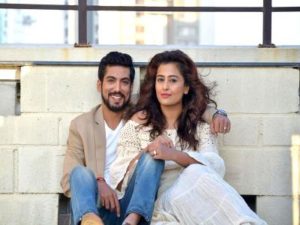
However, many members of the Kodava community reacted in a shockingly unkind manner, almost as if Nidhi would be single-handedly responsible for decimating the community and culture by marrying a man of her choice, who happens to be a non-Kodava.
The alleged reason being that the Kodava culture is a patrilineal culture and so any children from this marriage would be non-Kodava too.
How easy it is to forget facts in the heights of passion! Kodava culture may have been patrilineal for the most part but it is not and never has been absolutely patrilineal. Nor was it ever stringently patriarchal.
The Kodava culture was not influenced by the general Hindu belief that a woman is a “guest in her maternal home” who will one day get married and go away to her husband’s house.
So, Kodava marriage rites have a clause that says a married woman still holds certain rights in her maternal home. The Kodava culture did not subscribe to the general belief prevalent in most cultures, Hindu or non-Hindu that the bride is someone to be given away as a “daan” as in ‘Kanyadaan’ or someone to be “given away” by a male member of her family, preferably her father.
Instead, Kodava wedding ceremonies are more about creating a new relationship between the bride and the groom and their families. And, let’s not forget, widow/divorcee remarriage has always been a common practice in the community.
As far as lineage is concerned both men and women have the right to carry forward the family name. It can be done in two ways. If there are no sons in the family, the daughter can take a husband into her clan just as a wife would go to her husband’s clan. The husband can become a complete member of the wife’s family by taking over her clan name. Or, just their children can continue their mother’s lineage. (By the way, today this is also a legal right in a democratic country like ours).
In these modern ‘educated’ times, a natural extension of this kind of wise pragmatism would have been a more liberal attitude towards the taking on of clan names upon marriage; to be left to the discretion of the married couple and their family.
Maybe even gradually evolve from a one sided patrilineal system to an ‘ambilineal’ process which would truly benefit every individual and consequently the community as a whole. But no, corruption is the natural result of close contact with other cultures so we had to drag our women down a little to keep her on par with her counterparts in other cultures.
To make matters worse, Kodava women choosing a partner outside the community are being called ‘dogs’ – and very incorrectly at that, may I add?! – Or is ‘declared dead upon marriage’. Name calling women and killing them metaphorically, while at the same time defending a Kodava man who marries a non-Kodava woman appears to be the trend in some Kodava social media groups these days.
“I can only pray that the metaphorical killing doesn’t metamorphose into actual killing some horrifying day in the future. After all, the inhuman practice of ‘honor killing’ is still prevalent in certain societies today. And, I am sure such a heinous practice did not begin with someone waking up one day and suddenly deciding to kill women who supposedly bring dishonor to the family. It would have begun with the gradual deterioration of a woman’s standing within their culture, culminating in the idea that her life has no value outside of their cultural context.”
A close study of the historical narratives of Kodava culture reveals that the community did not place any extraordinary emphasis on the origin of birth of a person. Whatever the roots of Kodavas may be, the only reason the community has grown and survived so far, despite the numerous massacres, invaders and would be conquerors that Coorg has seen over the centuries, is because of assimilation.
Hermann Moegling, who lived and worked in Coorg, while writing his memoirs, published in 1855, put it very succinctly, “The spirit of clanship is exceedingly strong among the Coorgs…they call it now a regard for caste. But this is a complete mistake. They have no notion of caste in the Hindu sense of the world. For strangers are received among them and naturalized without difficulty, and such as have been, excommunicated, are received back without much ado.”
A few years later, Rev. G. Richter in his Gazetteer of Coorg, published in 1870, while remarking on the contrasting looks of Kodavas, ranging from Caucasian to Mongoloid, dark skin to fair, says, “Even within the memory of the present generation, strangers were received by and incorporated with the Coorgs.” He then goes on to write, “The renown of the Coorgs lies certainly not in the purity and antiquity of their genealogy, but in the union and strength of so many discordant elements into one compact body or clan that bravely fought on every occasion of danger for the honor and safety of their adopted country…”
The Kodava history, many elements of our culture, and the narratives of people who have had close contact with our ancestors discloses to us that ancient Kodavas took pride in honor, integrity, loyalty to clan and country, and a general belief in treating human beings, whether man or woman, Kodava or non-Kodava with dignity and humaneness.
This is quite unlike the more recent generations of Kodavas, many of whom unfortunately seem to think that our dignity and future lies in us bragging about ‘kunjis’ and ‘kutties’, on a person’s height, complexion, the all-important shape of the nose, and a Kodava woman’s husband’s identity.
About the author: Roona Uthappa Ballachanda is a writer, and has an MSW degree from Southern Illinois University, USA.

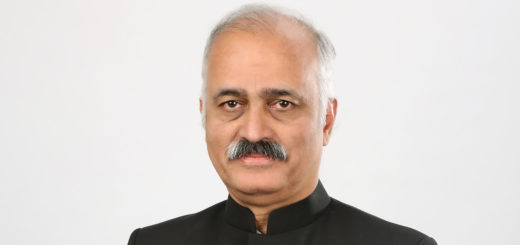




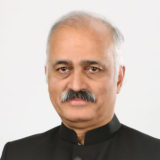

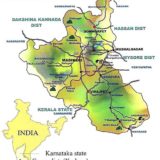
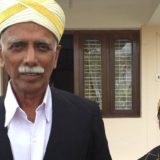
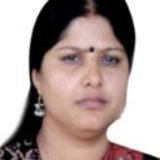

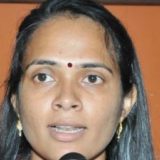
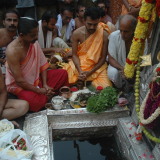




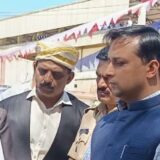


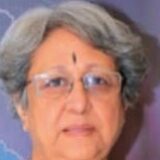
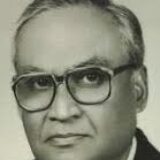


what is the solution?
Good to read diverse ideas on Kodava culture.Everyone have their opinions.Live and Let live…must be the theme…
At least for the Kodavas to read, Kodava race must be present on this earth. If every girl gets inspired by this article and gets married outside the community, then there wont be a single Kodava to read any Kodava article.
We both know such a thing is unlikely…the law of averages wouldn’t allow that.
Inter-caste marriages are common these days,especially in Kodava community. A few decades ago, marrying a non-Kodava man was termed as “Oadiponava”. Not just Kodava girls,but we have to teach our Kodava boys too against marrying a non-Kodava. If a Kodava boy marries from outside the community, his children too tend to marry on their own will and wish. We have already lost a lot of Kodava-born girls and boys. Now it is the turn of Nidhi.
Maybe so…inter-cultural marriage has it’s own unique impact on the children…but I am not sure the solution is as simple as always marrying within the community or the problem is always because of marrying outside the community…the problems faced by the community has a much much broader spectrum and it is not fair to make inter-cultural marriages the scapegoat for every single thing that’s going wrong for Kodava culture and Kodava land.
Absolutely . I am married to a Christian and all these years we used to go to Our Balya Mane as fly. Now we were told only #Kodavas can go .This kind of discrimination will distance us from participating in cultural activities.
One can follow his or her culture no matter to whom they are married.
Such open discrimination in this day and age is shocking…not to forget illegal. I hope this decision is reversed soon. On a larger scale I hope our community realizes that continuation of any culture depends on growth and growth cannot happen by resisting change.
Inter-caste marriages are taking place in all communities, not only in Kodava community, may be since about half a century.
The statement, “If a Kodava boy marries from outside the community, his children too tend to marry on their own will and wish”, is not correct. Now-a-days most marry as they wish. That can also mean that if a Kodava marries a non-Kodavathi, their children may as very well marry from the Kodava community according to their will and wish.
You have a well laid argument in this article. But one of the crucial facts in adapting to woman’s family is when there is no male child to carry on the lineage. So it is more about necessity than right.
Further I don’t think most of them have any problem with her marrying outside the community. It is more about the way she has been publicizing her wedding at all available forums, and projecting it as if marrying outside the community is the coolest thing to do in this world. This can have negative impact on the young impressionable mind of girls.
Sure…necessity provided women with the right to carry forward the lineage… But is it fair to the woman to just be used as a stand-in only? Before modernization when the entire clan lived off of communal land in the ainemane, this made some sense…but with these changing times, nuclear families with one or two children and both parents sharing economic responsibilities…it doesn’t seem wise to depend only on the male for family or cultural growth.
Historically, if you see, women have been in the forefront to safeguard the culture of any religion or community. Because children first learn their basics from their mother.Now if women themselves are not following their respective culture, then imparting the basics of culture to their children is ruled out. Same is expected of menfolk, but only at the later stage of children’s development.
You said it… Never underestimate the power of a woman, especially over her children!…So this means it’s far more likely that a kodavathi’s children will be more inclined towards Kodava culture compared to the children of a Kodava man and Non-kodava woman, because it is possible to follow all cultural practices, if you want to, irrespective of whom you are married to. But, in all seriousness, fathers too are different today, many are involved in their children’s upbringing very closely since the day of their birth.
I don’t think fighting over right and wrong, true and false is applicable here because we are talking about individuals. Each family will deal with things their own away. It is up to the community to either accept the ones who want to enter their folds and thus keep our culture going or reject and pay the price for it.
My kids have my kodava last name with my parents blessings. It really depends on the person how they manage their relationship, and the author is right about assimilation. I recall elders often would suggest that the family name remain if one married outside. My kids too married in the Kodava paddathi. SO I was shocked to learn that certain folks do not allow and actually prevent the groom or bride from observing the Coorg customs, if one of them is non Kodava.
We hoped Nidhi Subbaiah would be an ambassador of Kodava culture. If she had married a Kodava, she would have been a great example for the future generation to come.
Fair enough…but she can still be an ambassador of Kodava Culture if she is so inclined, her marriage doesn’t define her…there’s a lot more to being a cultural ambassador than merely marrying within the community, don’t you think?
Even if she chooses to be a ambassador of Kodava culture, it will be hypocrisy at the best. One cannot pick and choose the aspects of culture which is convenient to her, either accept as a whole or none. If she thinks she has problem with certain aspects of culture, she will be best placed to change it being part of the community and not being a outsider (yes, marriage defines a person in this context).
A person’s choice of spouse does not in anyway reflect on their attitude towards their culture. It just means, here is a man or woman with whom they feel comfortable sharing a home and a life.
Why only Nidhi Subbaiah be an ambassador of Kodava culture? Is that because she is a film star? There is another film star, Prema, who married a Kodava. Why she is not being taken as a great example by Kodavas, star in any field or not, and married only from our community?
If at all one wants to comment on the personal issue of marrying a non-Kodava, better find out the true reason behind such an alliance.
Marrying within or outside the community is not the ultimate. It’s how they make their marriage workable. How many marriages have survived irrespective of marrying within or outside the community. But what matters is that the children must be accepted in either of the community. Acceptance is the crucial aspect that makes a community to grow.
Well said…the crucial thing is acceptance of changing times, that’s what helps and a community and culture grow
We as a community need to learn to grow by inclusion. Why can’t the Kodava girl and her new husband be accepted by the community? Just as we are willing to accept a new bride who has married a Kodava boy?
Inclusion of individuals who respect our culture, who are willing to be part of our tradition, should be accepted by the community.
Being a Kodava by birth gives us a right to ancestral property. Being a Kodava by belief and acceptance is the need of the day!
Very true…It is is high time we became a more inclusive society. It doesn’t make any sense to continue gender based discrimination, especially when the rest of the world is intent on balancing the man-woman equation… And the male-female roles are becoming more and more fluid as the days go by.
Well said!
Live and let live.. The whole definition of marriage is taken wrongly in India not only in Kodagu. The only base of marriage is love, unconditional love. It’s sad that people are only concerned about saving the community by putting a stop to inter caste marriages. There are lot of ways where the tradition and the customs of any community can be kept alive.
I feel, to a certain extent we guys are responsible for the girls in our community opting for inter-caste marriage.Due to hard work and exposure, girls have been excelling in the fields they have chosen.
Now being a male dominated society for so many generations, most of the Kodava boys have been taking their life very casually, thus not able to match the fast track chosen by the girls.
Nowadays, most of the girls do not want to settle down in Kodagu. One of the reasons apart from social status of the guy is the economic status. This being the situation, how many Kodava boys would be well positioned to match the girls’ expectations?
There could be some exceptions where the so-called love could crop in where both respect each other in the inter-caste marriages and it is not that, most of them calling a split after few years and in some cases it is even days.
The advantage of marriage in the same community is the entire line of kith and kin would stand up to patch the difference and that would seldom happen in an inter-caste marriage, thus ending up with courts.
Personally I still believe woman is the first teacher and she shares a better wavelength with the kids and they have to be at their easy reach. If the kids grow with the nanny, then it is very clear that family is not their priority so the inculcating customs does not meet expectations.
I really appreciate the way you have pinpointed the differences between the girls and boys…I too think it is an important factor because very different life goals bring about major compatibility issues. Moreover, life in Coorg though beautiful has its limitations. It’s not just about social or economic status…it’s also about opportunities to fulfill personal aspirations, use one’s talent and abilities and also, not every Kodava is a major landowner with plenty of scope to experiment and achieve higher success…There are so many variables that go into making life’s important decisions and it is not wise to lose perspective on this issue.
It takes a guts to point it out…. I back you on this topic… and it is the fact, if one accepts it or not.
Whatever it is, I agree its up to them and its their life. We should not harass them using bad words. But this should not be an example for the youths to follow (marrying non-Kodava). Its not the matter to be taken easily. Say no to intercaste! Unity is very important! #ProudKodava
Nice. I am proud to be a Kodavathi. I agree with you.
What has happened cannot we undone. So pointing this celeb’s decision and debating would be of no use. I am not here to offend anybody. I am sharing my views.
Our ancestors gave their life at young age to save this community so that we lead a safe and secure life. Let us respect their sacrifice. Let us not continue inter-caste marriages,no matter whether it is girl or boy.
I married a non kodava 42 years back he speaks kodava tak and my only daughter and my 2 grand daughters speak kodava tak at home she stays at mumbai follow all kodava namme. After my husband s retirement we now settled in Kodagu.We bought small coffee plantation here. My husband is from Bangalore.
It’s a very old story.She has already parted ways with the non-Kodava and married to a kodava now..i think it says it all… nothing better than marrying someone with identical culture and thought process
We believe in live and let live. Our community is such that we don’t bother once the girl is married outside the community. If that hurts a person like Nidhi Subbaiah, it is her own guilt. Why blame the Kodava clan for her guilt? It was her decision and I am sure she knew the repurcussions of her action. For a person like me, yes it is her choice agreed. But I don’t even say she did right or wrong. I would not discuss about her period. Now if that makes her feel guilty, it’s her problem. Not ours. That is my take on it.